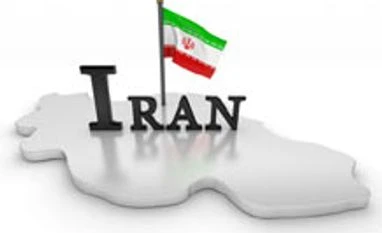World powers mull 'breakthrough' Iran nuclear proposal
But Israel, the Middle East's sole if undeclared nuclear-armed power, has warned against Rouhani's "sweet talk"
)
<a href="http://www.shutterstock.com/pic-63590809/stock-photo-iran-tribute-digitally-rendered-scene-with-flag-and-typography.html" target="_blank">Iran flag</a> image via Shutterstock
World powers today pored over what Iran billed as a breakthrough proposal to end the decade-long standoff over its nuclear programme, amid a growing diplomatic thaw but stark warnings from Israel.
Negotiators from the European Union-chaired P5+1 group -- the United States, Britain, France, China and Russia, plus Germany -- spent a morning combing through the details of Iran's plan which it said allowed for snap inspections of its atomic sites.
Earlier today, they met Iran's team for what EU spokesman Michael Mann said was a continuation of "technical work" from yesterday's initial sessions.
Also Read
All sides underscore the changed tone in the Geneva talks, which come two months after Iranian President Hassan Rouhani, seen as a relative moderate, succeeded conservative Mahmoud Ahmadinejad.
But Israel, the Middle East's sole if undeclared nuclear-armed power, has warned against Rouhani's "sweet talk", with one minister comparing the situation to the appeasement of Nazi Germany.
The meeting ended a six-month freeze in negotiations after Iran's refusal to curb uranium enrichment in exchange for easing the international sanctions battering its economy.
Western powers and Iran's arch-foe Israel fear that Tehran's atomic programme is a disguised effort to build a nuclear bomb, a claim it denies vehemently.
Rouhani has pledged transparency on the nuclear programme and engagement with the international community to try to get the sanctions lifted.
"We are very serious. We are not here symbolically, to waste our time," Iran's lead nuclear negotiator Abbas Araqchi said yesterday.
Iranian Foreign Minister Mohammad Javad Zarif and his team made an hour-long presentation to the P5+1 yesterday.
Zarif said Tehran's plan contained three steps that could settle the long-running nuclear standoff "within a year", with the first achievable steps "within a month or two, or even less".
Araqchi said Tehran believed the proposal had the "capacity to make a breakthrough," telling reporters it was "very comprehensive" but that all parties had agreed to keep it under wraps.
More From This Section
Don't miss the most important news and views of the day. Get them on our Telegram channel
First Published: Oct 16 2013 | 6:56 PM IST


